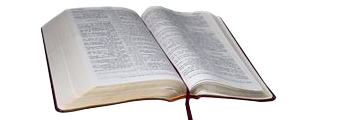
CHURCH OF THE BRETHREN NETWORK
Continuing the work of Jesus : Peacefully ~ Simply ~ Together
UNOFFICIAL WEBSITE OF THE CHURCH OF THE BRETHREN

 |
CHURCH OF THE BRETHREN NETWORK Continuing the work of Jesus : Peacefully ~ Simply ~ Together UNOFFICIAL WEBSITE OF THE CHURCH OF THE BRETHREN |
 |

William Tyndale
Born: 1494? ~ Gloucestershire, Great BritainTyndale's translation of the New Testament in 1526 was the first English Bible to appear from a printing press, and to be translated directly from Greek rather than Latin. He was also the first to use a Greek Text compiled from newly arrived Byzantine Greek manuscripts from the east. Many of his phrase selections are so powerful and descriptive that they are frequently retained in modern translations.
He was educated at Oxford University, and later at Cambridge where he also lectured. Tyndale became skilled in Hebrew, Greek, Latin, Italian, Spanish, and French with such command that Herman Buschius, a friend of Erasmus, stated that: "whichever he spoke you would suppose it his native tongue." In 1522, he became the private tutor for the children of a prominent family, and decided to translate Erasmus's "The Christian Soldier's Handbook," for the children's schooling. The book itself was not under prohibition, but it strongly admonished people to become involved in personally studying the Bible. For this seemingly innocent deed, Tyndale was forced to appear before the Gloucester diocese on a charge of heresy. Although he was not punished, this experience led him to believe that the root cause of all such religious clamoring was a basic lack of scriptural knowledge. Tyndale speculated that if people, laity and clergy, had a better understanding of scripture, the knowledge of it's precepts would alleviate the confusion which results in bannings and punishments. When his dream met challenge from a nobleman, Tyndale replied: "If God spare my life, ere many years, I will cause a boy that driveth a plough shall know more of the Scripture than thou doest."
Upon learning that Martin Luther had just issued a Bible in German, he was further inspired to replicate this enterprise for the good of England. Since the Constitutions of Oxford were still in effect, and an attempt to work under the supervision of Cuthbert Tonstall, Bishop of London, proved unsuccessful, Tyndale sailed to Germany and began the work of translating. In 1526, the first complete New Testament in English was printed in the city of Worms, and the first shipment of Bibles arrived in England within a few months. It had references to parallel verses in the inner margin, and commentary in the outer margin. It also followed the same New Testament book order as Luther.
Bishop Tonstall, confiscated and burned many of the early copies, and tried to purchase others in Europe before they could arrive in England. Tyndale used the Bishop's money to print even more Bibles, and circulation soon increased. Unknown to Tyndale was the fact that political winds were changing back in his native England. Henry VIII had begun quarreling with Rome over his unfruitful marriage to Catherine, Thomas Cromwell who liked the idea of vernacular Bibles was rising to a position of influence with the king, and Tyndale's chief detractor, Sir Thomas More, had resigned as Lord Chancellor.
Tyndale was living in the free city of Antwerp, but the surrounding land was still under the control of Emperor Charles V, also nephew of Catherine whom Henry had recently divorced. Tyndale was kidnapped, taken from Antwerp, and imprisoned in the fortress of Vilvorde. He was later convicted of heresy, strangled, and burned at the stake on October 6, 1536. While tied to the stake, and just prior to being strangled by the executioner, he cried: "Lord, open the King of England's eyes." Tyndale's prayer had already been granted, for he did not know that for several months, the Henry VIII had given permission for Myles Coverdale's vernacular Bibles to be distributed. Coverdale was not an expert in foreign languages and his New Testament source is principally that of William Tyndale.
FOOTNOTES & OBSERVATIONS
Translators even until modern times have retained many of Tyndales expressions and interpretations. His excellent understanding of many lanugages allowed him a unique capability of selecting a word pattern that would most pleasingly duplicate not only the literal sense, but also the intent of meaning. Occasionally his choice of words were not the most literal. For example, in the Lord's Prayer of Matthew 6:12, he used "trespasses" instead of the more literal "debts" for the Greek word OPHELETOS. But if the gospel writer is rendering an idiomatic expression in Aramaic for sins, then Tyndale's interpretation may be more correct than a literal translation from Greek.
Notice in the following examples how translators have been influenced by Tyndale's original choice of words for Matthew 13:3-4.
TYNDALE (1525)
A few earlier selections were taken from John Berchmans Dockery, Comparative summary of English Versions, Franciscan Herald Press, Revised by Catholic Publishers, Inc., 1971, p.25.
Additional Resources
Written by Ronald J. Gordon as extended information for other major articles